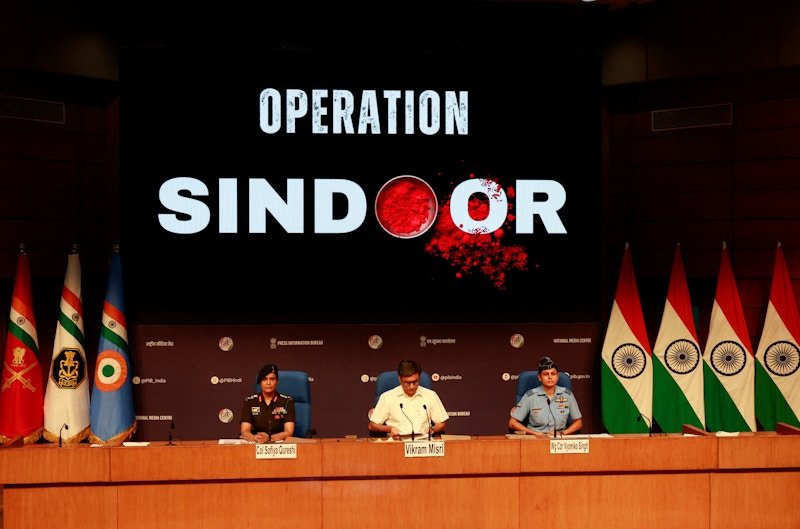Business Story
Collapse from Within: How Strategic Pressure is Bringing Down Pakistan
While India quietly ratchets up the temperature with Operation Sindoor, Pakistan is being beset by internal crises of economic collapse, political turbulence, and spreading extremism—potentially more devastating than foreign strife.
A Cover Story Exclusive Analysis
A new model of warfare is unfolding across South Asia—less about tanks and missiles, and more about sustained pressure and strategic endurance. Through the classified contours of Operation Sindoor, India appears to be conducting a campaign not aimed at winning a conventional war, but at breaking its adversary from the inside out.
This shift from deterrence to disruption signals that New Delhi has adopted a doctrine designed not just to protect Indian interests, but to expose the fault lines within Pakistan’s fragile internal structure.

The Economic Collapse Engineered by Containment
Pakistan today faces an economic cliff edge. Foreign reserves have dwindled to dangerously low levels, inflation is galloping, and the rupee is plunging. The economy, held together by foreign aid and IMF bailouts, now resembles a dependency loop rather than a recovery path.
India’s diplomatic maneuvering—especially its role in keeping Pakistan on the FATF grey list—has further eroded investor confidence and choked access to global financing. Foreign direct investment has dried up, credit ratings are sinking, and business sentiment is dismal. As a result, Pakistan’s sovereign debt outlook remains perilously close to default.
While India strengthens trade ties with the Gulf, ASEAN, and Central Asian markets, Pakistan finds itself increasingly shut out of regional economic integration. China, long viewed as Islamabad’s economic backer, has cooled its enthusiasm, slowing CPEC disbursements and project activity due to political risk and repayment concerns.
Political Tensions: The Unstable Core
This external pressure is now cascading into Pakistan’s political institutions. Civil-military relations—already fragile—are under renewed stress. The military, traditionally the power broker in Pakistani politics, faces rising scrutiny from a public mired in economic pain and disillusionment. Civilian leaders, on the other hand, are stuck between appeasing the military and avoiding a total fiscal collapse.
These tensions have historical precedents. Coups and political resets have occurred under far less pressure. With public dissatisfaction growing, especially in urban and youth-heavy demographics, the risk of mass unrest or a military reshuffle is no longer hypothetical—it’s plausible.
The Extremism Wildcard
Strategic external stress often creates internal vacuums. In Pakistan’s case, this could lead to a reawakening of extremist forces, particularly in border regions like Balochistan or Khyber Pakhtunkhwa. As the state grapples with governance paralysis and economic rot, militant outfits may exploit the chaos, rebuilding networks and regaining territorial influence.
This not only presents a grave national security challenge, but also jeopardizes Pakistan’s fragile standing with Western governments, which have grown increasingly intolerant of state-adjacent extremism.
The Real Battlefield Is Within
Operation Sindoor may never be officially confirmed, but its ripple effects are visible far beyond India’s borders. The operation represents a strategy of non-linear conflict—one that doesn’t aim to topple tanks, but to topple regimes by amplifying their internal contradictions.
For Pakistan, the war is already underway—and it’s not being fought in Kashmir or along the LOC. It’s being fought inside its financial markets, its energy grids, its institutions, and on its restless streets.
India, through measured but unrelenting pressure, may ultimately achieve strategic dominance not by invasion—but by erosion. If current trends persist, Pakistan’s eventual collapse could come not from outside attack, but from internal disintegration.
#OperationSindoor
#PakistanCrisis
#StrategicCollapse
#HybridWarfare
#EconomicWarfare
#SouthAsiaSecurity